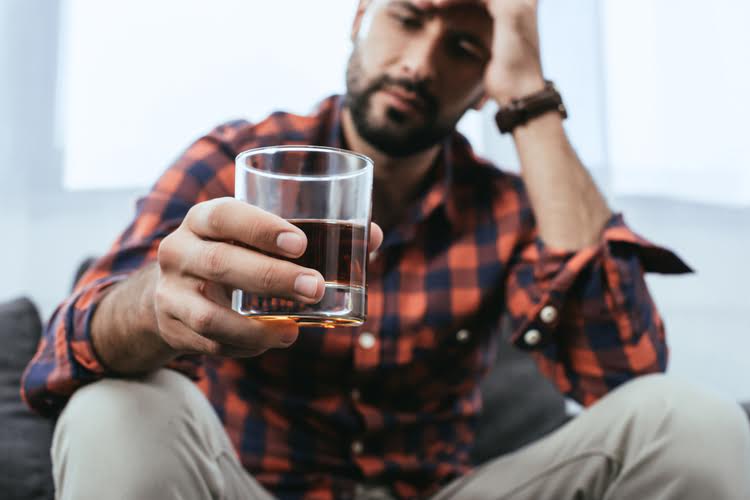Content
Here, eye movement stops completely and heart, breathing, and brain activity reach their lowest point of all four stages. In N3, hormones are released that help with appetite control and blood flows to the muscles for recovery. It’s the most important sleep stage for physical growth, repair, and immunity. The brain then moves on to the next stage of light sleep, but there is an increase in brave wave frequency, followed by a further slowing down. This process of powering up and then slowing down helps to further slow activity in the brain. Your brain spends more time in this stage of sleep than in other stages.

Having a drink before bed may seem like a way to relax and unwind. However, alcohol is actually detrimental to getting a good night’s rest. Getting enough quality sleep at night is important to your overall health.
2 Acute alcohol: sleep EEG data
A lot of people who think they have insomnia, she said, may just be drinking too much or too close to bedtime. The first stage of sleep, also known as light sleep, is the short transition period between wakefulness and sleep. It lasts less than 10 minutes and in this phase, your body relaxes, body temperature drops, and melatonin is released. It’s also the stage where you might experience a muscle twitch or a brief feeling of falling. These are called hypnic jerks and sleep starts and are totally normal as your body and mind relax into a sleep state.
Alcohol directly affects your sleep, no matter how much alcohol you’re consuming.Too much alcohol decreases sleep durationand increases poor sleep quality. If you want to be really careful, Dr. Willeumier recommends giving yourself a six-hour window before bed. According to Healthline, studies show that meditation with controlled breathing may help lower the heart right, decrease blood pressure, and increase melatonin and serotonin levels. As you use Sunnyside over time, you’ll be able to visualize the impact that your healthier drinking habits have on your sleep, giving you additional motivation and validation to continue your progress. Armed with this real knowledge, you may find that you start to prioritize a healthy night’s sleep over imbibing.
Avoid Combining Alcohol With Medications
Doctors have found that on its own, alcohol can narrow your upper airway and lead to sleep apnea problems, even if you have never had them before. Not getting enough REM sleep can make concentrating difficult, cause forgetfulness and leave people feeling excessively sleepy during the day. Poor sleep alcohol and sleep can also contribute to a wide range of health problems, according to the NIH, including obesity, high blood pressure and depression. Below, we’ll take a closer look at how alcohol affects the different stages of sleep, as well as how the quantity and timing of alcohol can influence sleep quality.
The left panel (KC+) shows the result of averaging responses that included K-complexes. The right panel (KC-) show the result of averaging responses not including K-complexes. Your daily habits and environment can significantly impact the quality of your sleep. Take the Sleep Quiz to help inform your sleep improvement journey.
How Alcohol Is Screwing With Your Sleep
One possible mechanism is long-term alteration in responsiveness of GABA mechanisms. Thus down regulation of brainstem GABAergic systems following development of alcohol dependence would lead to diminished activity in REM-off systems leading to an increased propensity for REM. This hypothesis has not been directly tested, and it should be noted that other factors may play a role in the increased REM seen in long-term abstinent alcoholics. For example, administration of the tumor necrosis factor α (TNF-α) antagonist etanercept led to normalization of REM sleep in 18 abstinent alcoholics (Irwin et al. 2009). Abnormalities in the timing of REM sleep would appear to last longer into the abstinence period.
Suppressing REM sleep can have detrimental consequences for memory consolidation and other cognitive processes. For most people, alcohol induces a deeper-than-usual sleep in the first half of the night, followed by disrupted sleep in the second half of the night. Yules RB, Freedman DX, Chandler KA. The effect of ethyl alcohol on man’s electroencephalographic sleep cycle. Pieters S, Van Der Vorst H, Burk WJ, Wiers RW, Engels RC. Puberty-dependent sleep regulation and alcohol use in early adolescents. Pfefferbaum A, Rosenbloom MJ, Rohlfing T, Sullivan EV. Degradation of association and projection white matter systems in alcoholism detected with quantitative fiber tracking.
